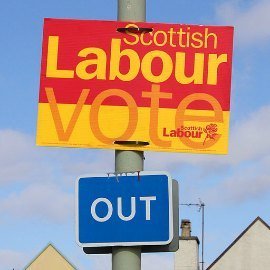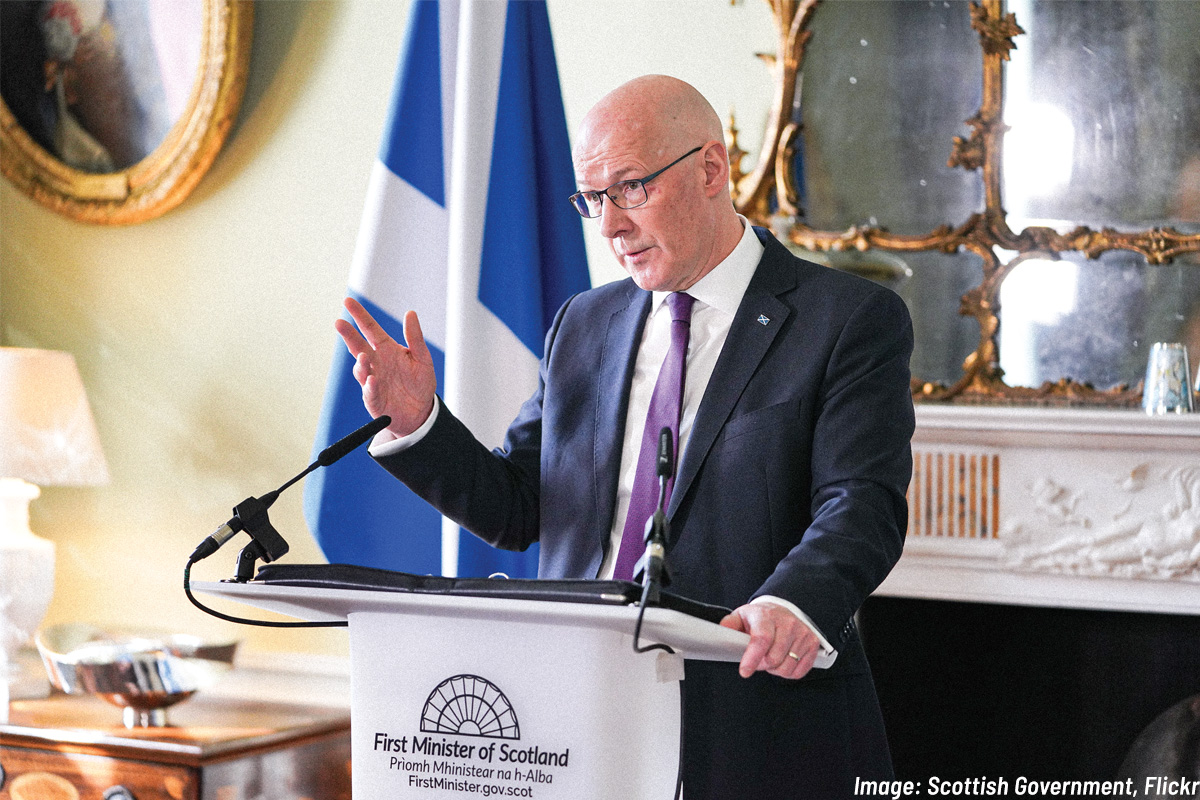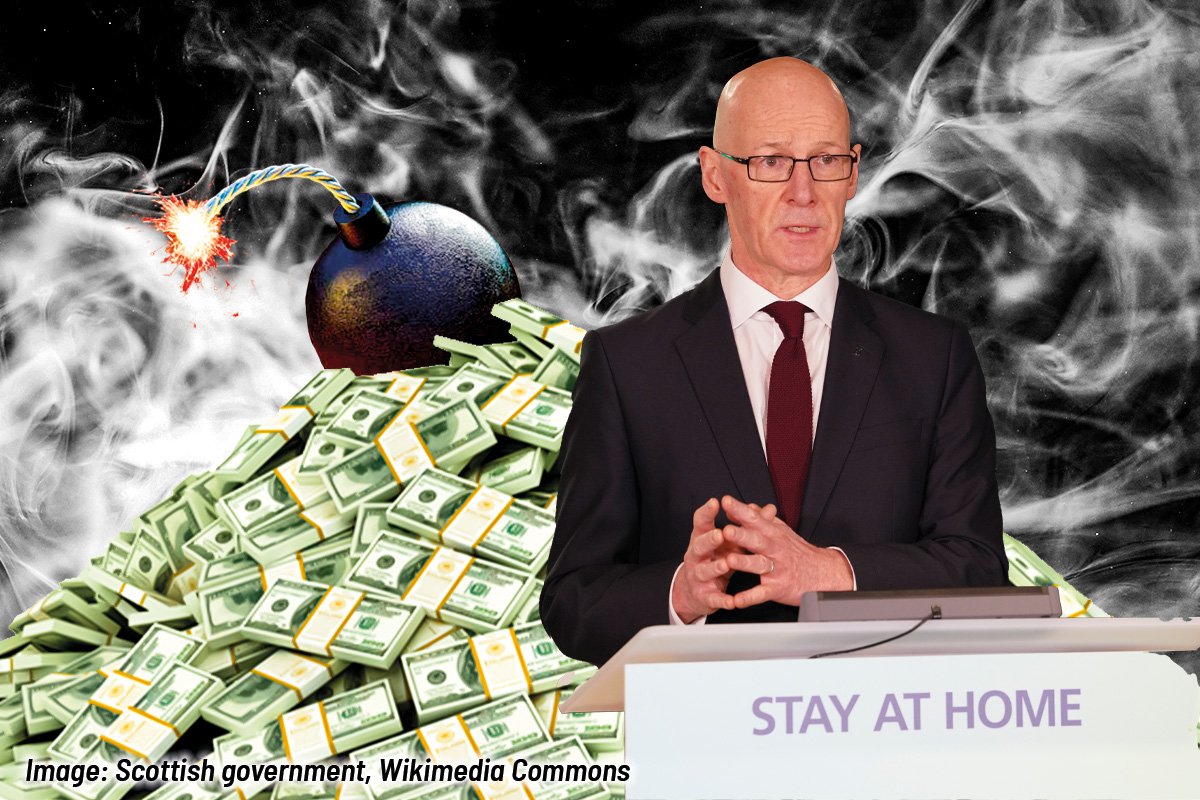The election of Jeremy Corbyn as leader of the Labour Party shocked the establishment, and galvanised socialists, not least in radicalised Scotland. But can Corbyn win back workers and youth – who have abandoned Labour for the SNP – in Scotland?
The election of Jeremy Corbyn as leader of the Labour Party shocked the establishment, and galvanised socialists, not least in radicalised Scotland.
North of the border the SNP has long been regarded to the left of Labour on most issues, supporting the scrapping of Trident and making great use of anti-austerity rhetoric. The election of Corbyn as Labour leader has been met with enthusiasm by workers and youth in Scotland. Some of them may now consider voting Labour again, after previously leaving in disgust at the policies of New Labour. The path for Corbyn is steeply uphill, however, considering how the reputation of Labour has been damaged in recent years.
It is important to understand the combined reasons of the SNP electoral success and Labour’s defeat during the last elections, before trying to understand what may happen next.
A transformation in Scottish politics
Unlike its portrayal in the mainstream media, Scottish Nationalism has very little in common with naive jingoism or anti-English sentiment. Such a simplistic analysis wouldn’t explain how even cities like Edinburgh – which has a large non-Scottish population – overwhelmingly supported the SNP.
Rather, Nicola Sturgeon, and her predecessor Alex Salmond, have taken advantage of the anti-establishment, anti-austerity mood of the masses, who are fed up with years of Tory rule. The Conservative Party in Scotland has struggled to get over 10% of preferences, which means Scots are ruled by a party they overwhelmingly rejected. This mood is even stronger now after the radicalisation of workers and youth that took place in the run-up period to the Referendum.
The change in consciousness during the last weeks of the Referendum campaign was radical. Workers and youth became rapidly politicised in a short period of time, drawing radical conclusions.
This led to the highest voting turnout in the history of British politics. The radicalisation expressed itself in increasingly bigger rallies held throughout the country, especially in the working class city of Glasgow.
The mood of the masses wasn’t dampened by the referendum result. In fact it was strengthened. That enthusiasm expressed itself in huge jumps in membership for the pro-Independence parties, especially the SNP, which is now one of the largest parties in the world, as a proportion of the population.
Some more advanced layers of workers and youth have joined the Scottish Socialist Party, realising the internal contradictions of the SNP, which is a traditional capitalist party, albeit now with radicalised working-class base.
Labour wasted its chances to offer a real alternative to Tory rule in the previous parliament, merely offering “Tory-Lite” policies, as Nicola Sturgeon dubbed them. They also made the unforgivable mistake of sharing the “Better Together” platform with the hated conservatives and Lib Dems. They then followed this up by electing a Blairite Scottish Leader, Jim Murphy, who defeated the left-wing candidate Neil Findlay and lurched the party even further to the right in Scotland.
Labour in Scotland earned the title of the “Red Tories” and “The Party of Betrayal”. For a long time Labour has been another “establishment” party in Scotland. It is therefore no surprise that the anti-establishment mood played out against them. The “Better Together” campaign was the proverbial last straw that broke the camel’s back. Older, traditional supporters also turned their back on Labour, and even the majority of trade unionists voted SNP in the May elections. In Scotland there was a higher turnout than the rest of the UK, and the SNP almost wiped out all other parties, taking 56 out of 59 seats, leaving Tory, Labour and Lib-Dems with one seat each. The SNP is clearly seen as more left-wing than the Labour Party by Scots. This, and not nationalism, is the cause of its success.
Corbyn’s impact in Scotland
 Corbyn’s leadership campaign rekindled some enthusiasm for the walking-wounded Lefts who remained with Labour. He put forward radical left-wing policies, which put him in tune with the majority of Scots. The events of his leadership campaign in Scotland were packed with many sympathisers and supporters, not all of whom could fit into the venues and were forced to wait outside to catch a glimpse of the future Labour leader.
Corbyn’s leadership campaign rekindled some enthusiasm for the walking-wounded Lefts who remained with Labour. He put forward radical left-wing policies, which put him in tune with the majority of Scots. The events of his leadership campaign in Scotland were packed with many sympathisers and supporters, not all of whom could fit into the venues and were forced to wait outside to catch a glimpse of the future Labour leader.
Not all those attendees were Labour voters, with many Yes supporters, SNP voters, and youth attracted to a Labour event for the first time. Among them were traditional supporters who had recently turned their back on Labour and are now happy to see Labour going leftwards again.
Corbyn said the right things. He acknowledged the mistake Labour made by sharing the “No” platform with the Tories, instead of putting forward its own vision for a radical Scotland. He said he’s a Socialist, not a Unionist. He supports the scrapping of the Trident and the end of austerity – both proven popular policies north of the border.
Renationalising the railways and other key services are very likely to be on the next Labour manifesto, a measure which would be beneficial to the majority of Scots fed up with increasing prices and higher fares, which only make those at the very top of big companies richer.
Corbyn also announced he will not interfere with the leadership of the Scottish Labour Party. Johann Lamont resigned as leader last year complaining that the Scottish party was treated as London’s branch office. Furthermore, Marxists are fully aware of the contradictory nature of the SNP, which tries to please both capitalists and workers. These contradictions will eventually come to the fore. A socialist Labour leader will accelerate this process.
Holyrood energy minister, Fergus Ewing, revealed the true nature of the SNP when he attacked Corbyn’s plan to renationalise the energy sector, showing who he, and the SNP leadership, really prioritise: big business.
Ewing also refused to rule out an unlimited ban on fracking. The Herald wrote that “Ineos, which runs Grangemouth refinery, are currently holding public meetings to promote the potential for fracking in Scotland. The company has paid the SNP thousands of pounds for exhibition space at this month’s conference in Aberdeen to lobby party members, and will meet SNP MPs at Westminster at the end of the month”.
The point is that the SNP does not stand for socialism and for a revolutionary transformation of society, based on greater equality and workers’ democracy. Their solution to all Scotland’s problem is independence, a mere transfer of power from London to Edinburgh, which alone won’t change the lives of the majority of people.
Scots have hailed Corbyn’s election, and Scottish Labour has increased in members. A survey published by the Financial Times shows that 38% of voters in Scotland ‘strongly agree’ or ‘agree’ with the statement “I am more likely to back Labour with Corbyn as leader”. In another survey conducted by the Guardian, a third of SNP supporters said they were more likely to back Labour following the result of the leadership contest. A general sentiment of support seems to have spread amongst more loyal, hard-core Scottish Nationalists, who support Corbyn and wish him good luck, but who still won’t consider voting for him yet. Things have changed since the election of the new Labour leader.
Scottish revival?
Despite the positive reaction of a part of the workers, the future of Scottish Labour is far from secure. A poll published in the second week of October by the Scotsman shows that Labour won’t get more than 22% of first preferences in the 2016 Holyrood elections. The SNP is set to win an even greater majority and will get over 50% of MSPs, despite a voting system famously devised to not let this happen.
According to the same poll, Labour may not win a single Holyrood constituency. Even though Labour membership has gone up in Scotland, there is no official data about it. Unofficial estimates show the membership surge is not comparable to what was experienced in the rest of the UK. The party sits at around 30,000 members, according to an article published on the Guardian website on the 1st October. Although it has doubled the number of its members since May, it is nowhere near the SNP, whose membership is over 110,000.
As a side note, while the signal towards greater independence for the Scottish Labour Party is a good thing, people cannot fail to notice how the Scottish leadership is much more right-leaning than its British counterpart, and therefore less likely to attract some lost voters if left to its own devices.
The new leader Kezia Dugdale has so far been very vague over what the Labour Party has to do to win people back. The vote in favour of scrapping Trident at the recent Scottish Labour Party conference is very welcome; the shadow defence secretary coming out the very next day and saying the vote makes no difference to Labour’s national policy is less so.
A growing number now see independence as a necessary step to have their voices heard, and are more likely to vote Yes in another independence referendum, even though they may not support the SNP afterwards. Marxists cannot predict the election result, but a complete reversal of last May seems very unlikely. Even less likely is that the prospect that Labour won’t be completely wiped out in Holyrood next year. Some people may return back to Labour at the next general election. The truth, however, is that at present the majority of people remain alienated from Labour.
Corbyn’s task in Scotland is a particularly tough one. Many wonder whether independence is inevitable. Should the Tories (or a “Tory-lite” Labour Party) keep governing the country, Scots may indeed back independence at the next available opportunity.
As explained above, those who support independence don’t do it because they are fervent nationalists, but rather because they think it’s the easiest way to deliver radical policies they support.
Great workers’ achievements were accomplished after the stirring of Glasgow workers in the early 20th century, like the Rent Restriction Act during the First World War. Lenin himself thought the British revolution would start in Glasgow, which was the most industrialised city of the Empire.
Corbyn has to persuade Scotland that his Labour government will deliver exactly what Scots want. End austerity; scrap Trident; renationalisation of public services; a greater redistribution of wealth; repeal the benefit cap and the tax credits.
In doing so, in line with his support for grassroots politics, he must support home rule for Scotland, the so called “Devo-Max” option. Surveys in the run-up to the referendum showed how this option was backed by the majority of the electorate. This, and an anti-austerity policy throughout the Labour Party, are the only way Corbyn could possibly win back Scotland.






